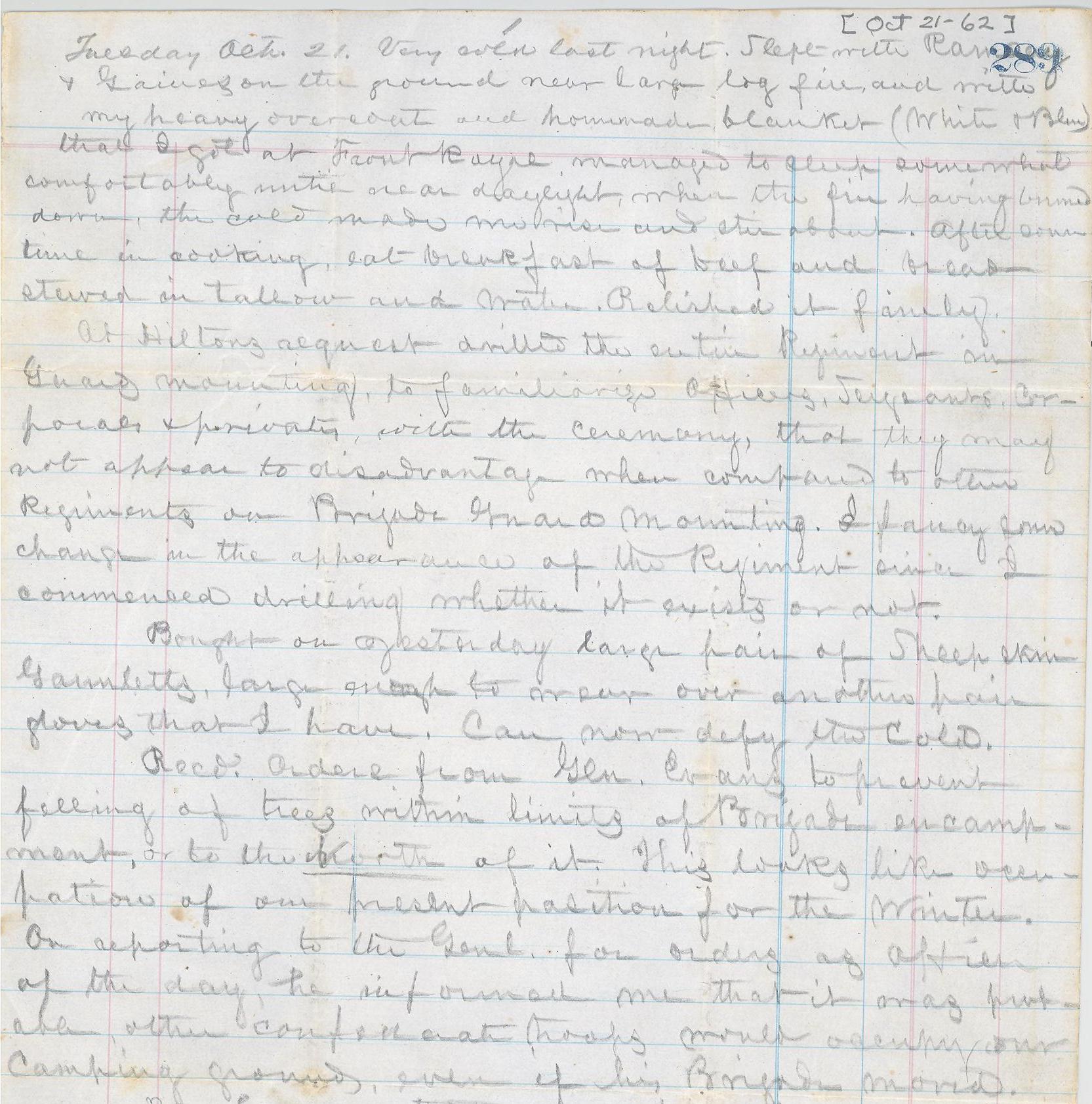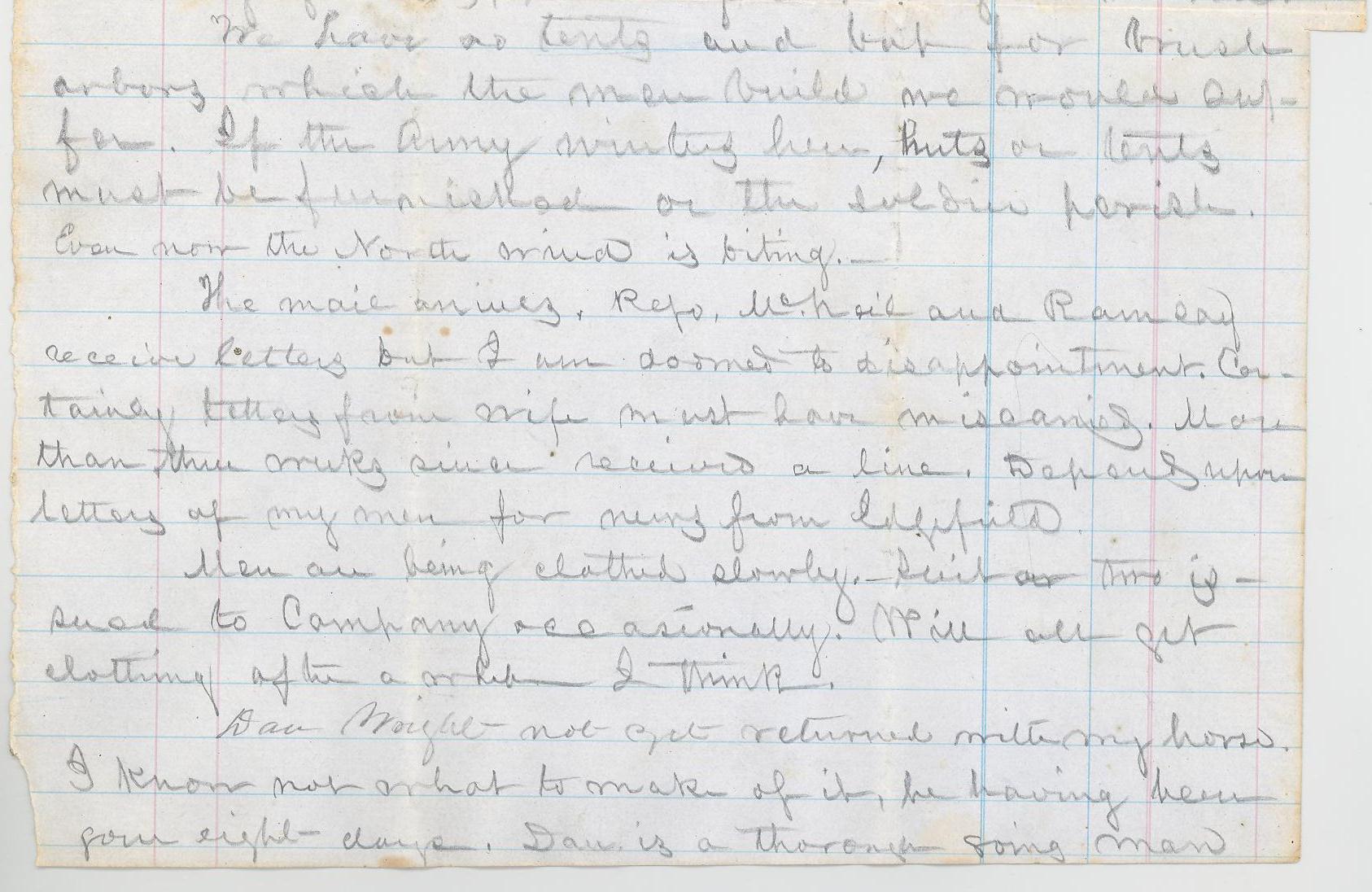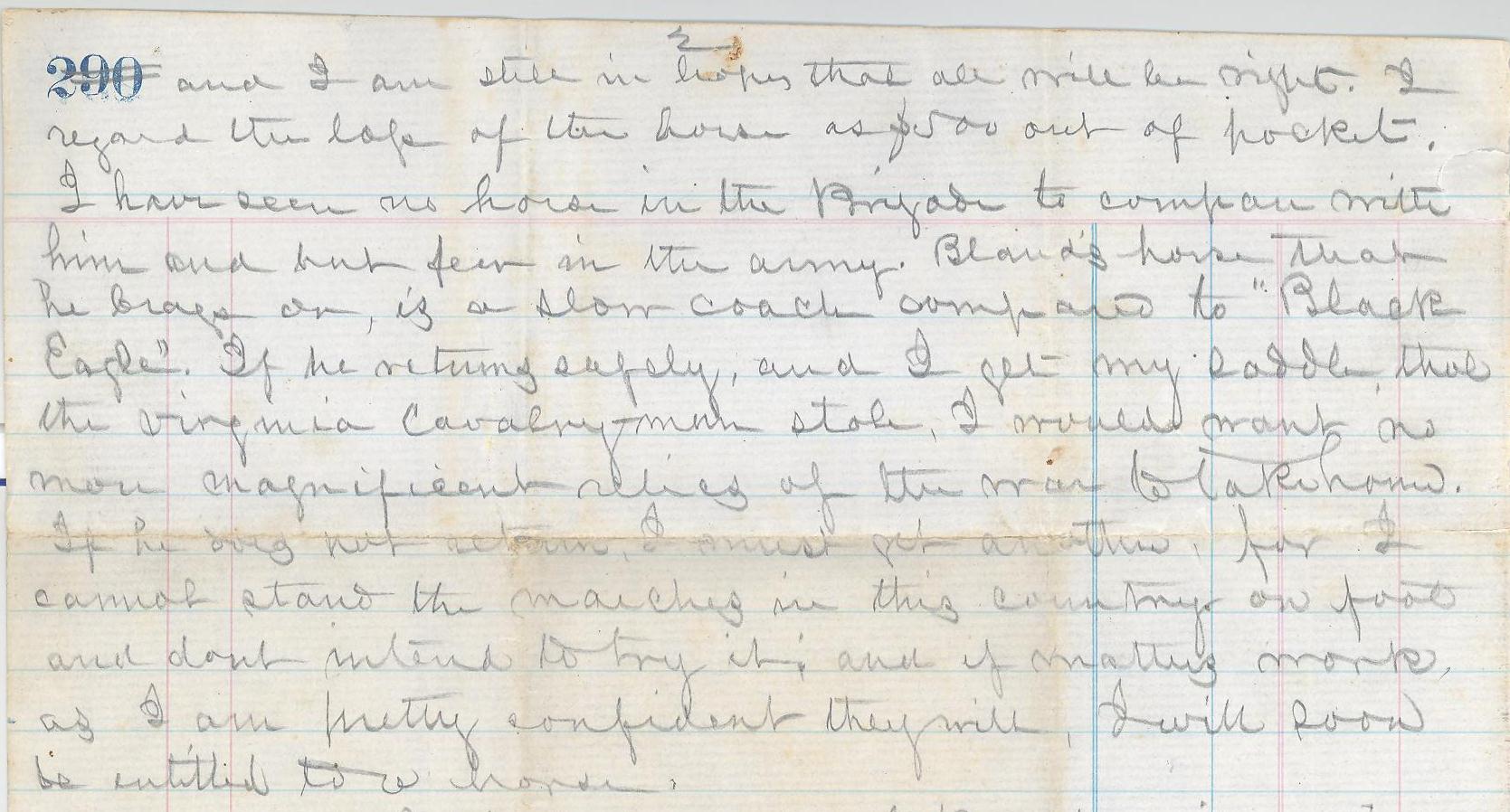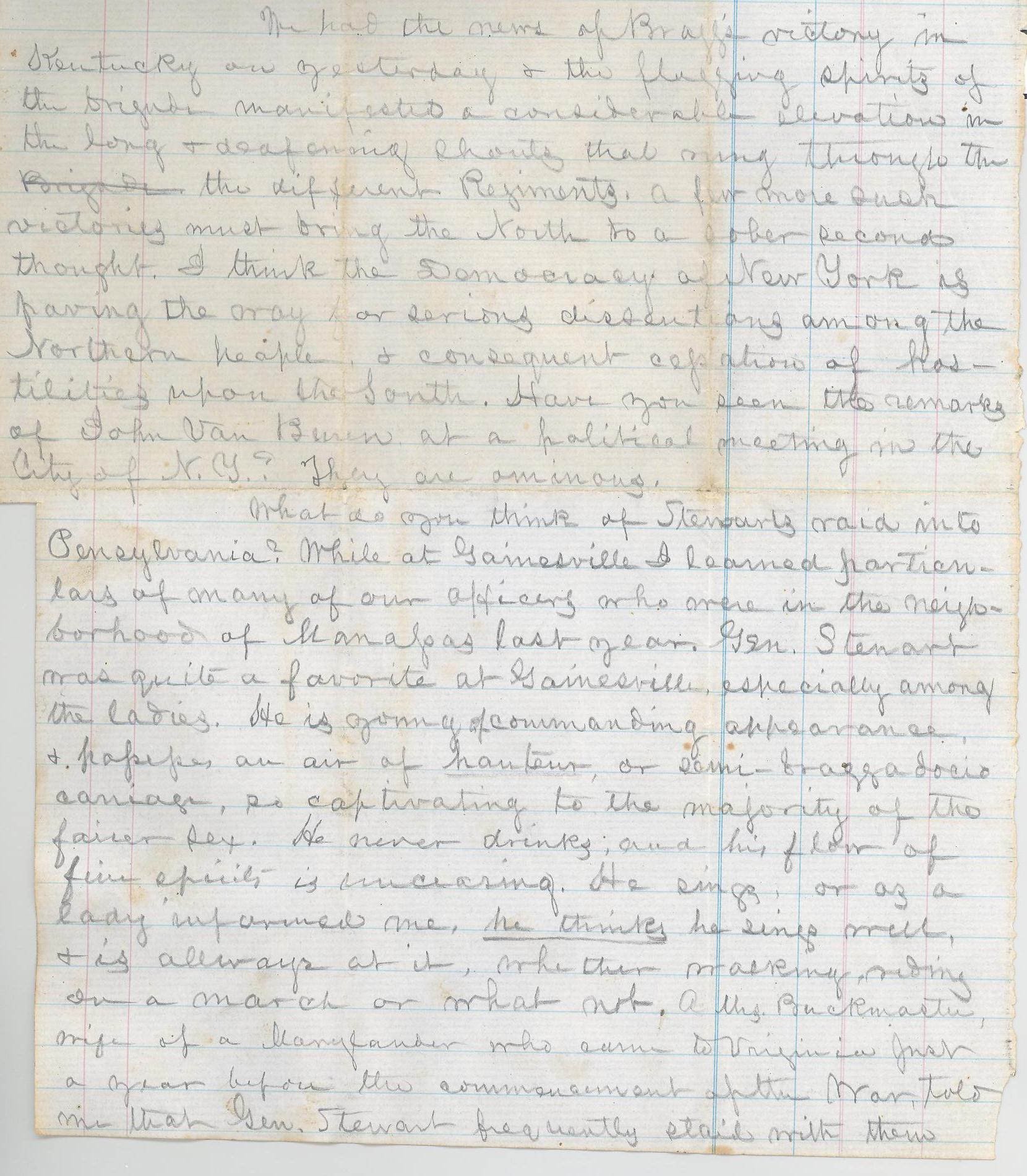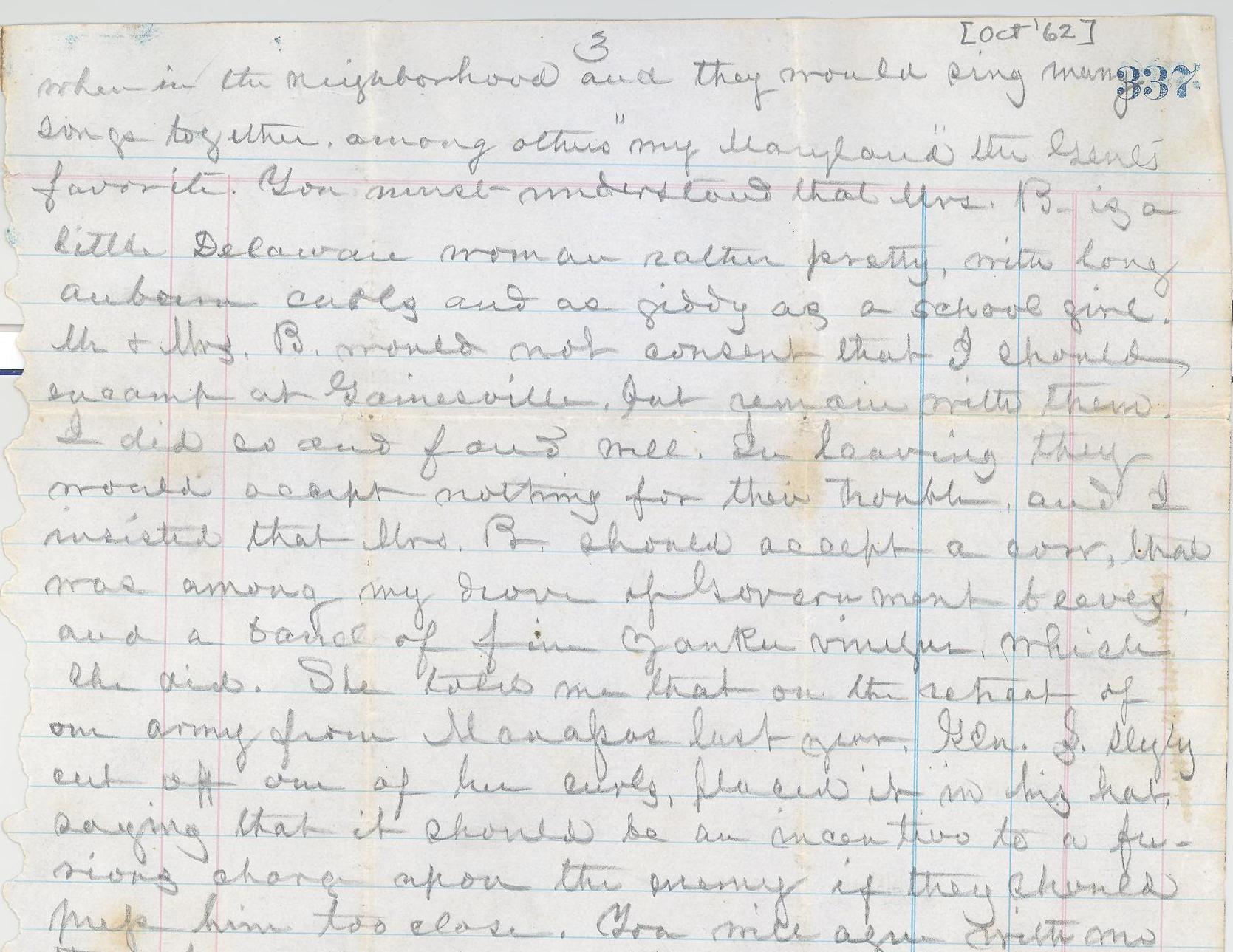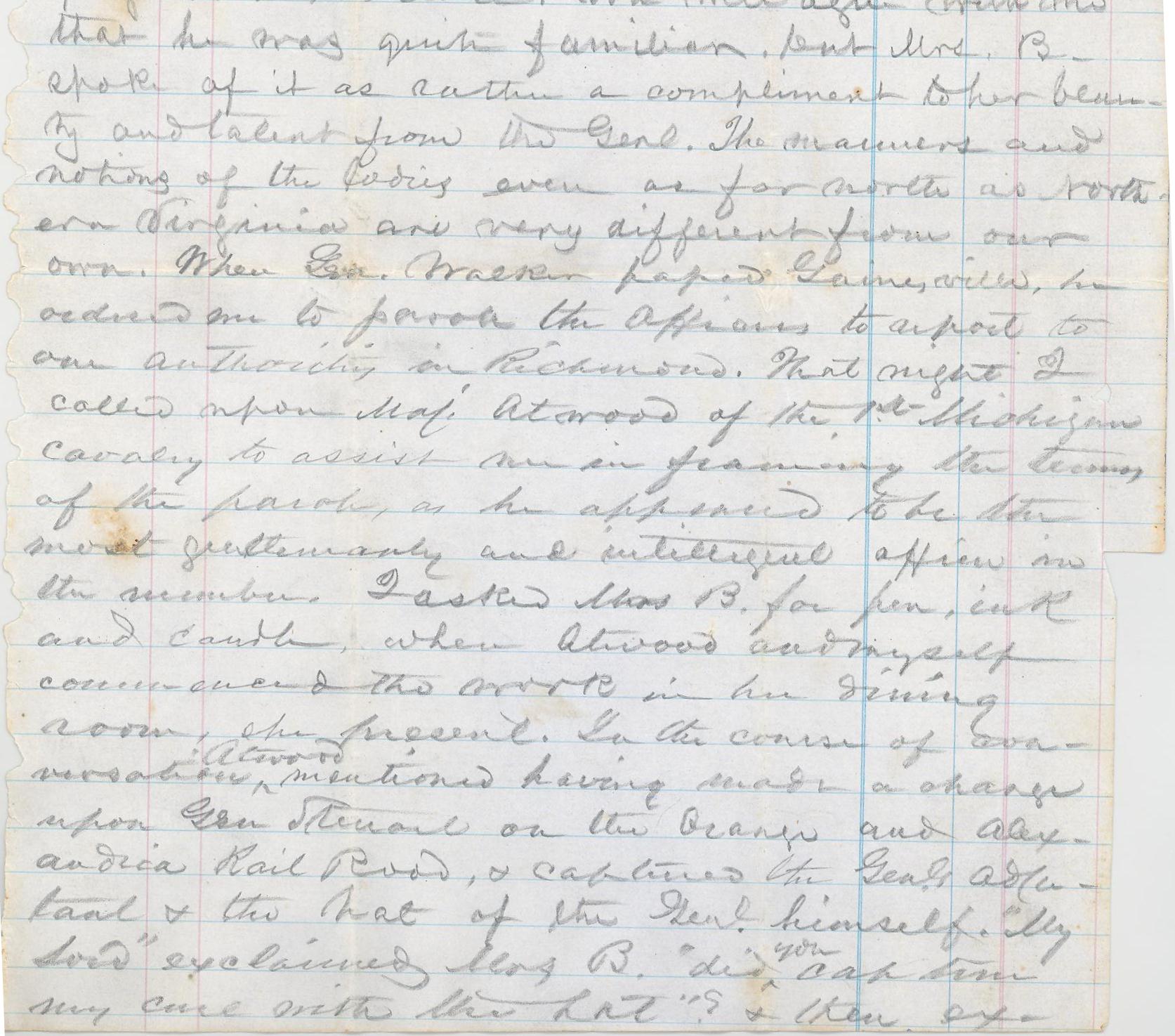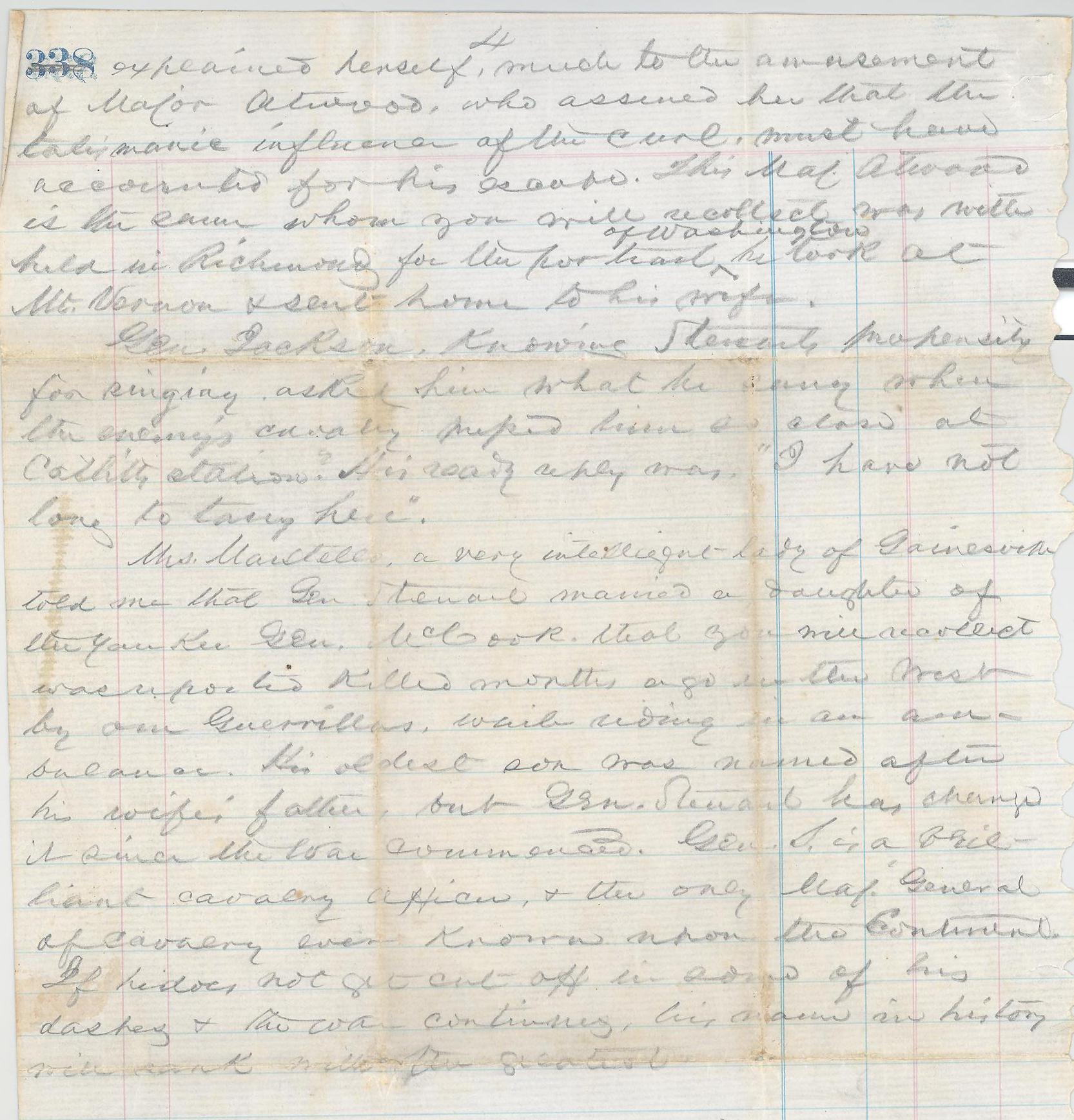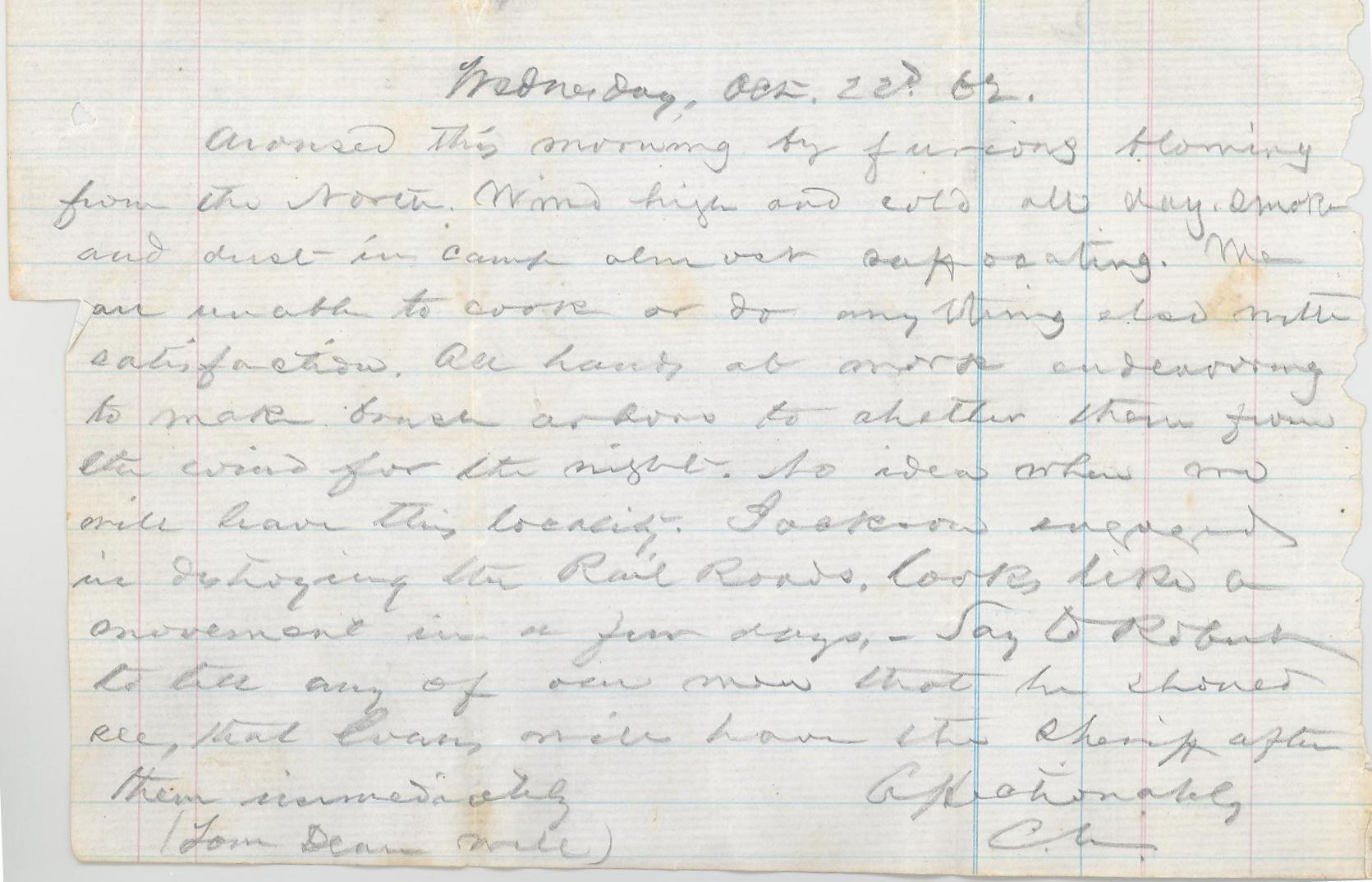Item description: Letter, 21 October 1862, from Cicero Adams to his wife Mary.
More about Cicero Adams:
Cicero Adams was the husband of Mary Hughes and son-in-law of John H. Hughes, all from the Edgefield area of South Carolina. Cicero, along with four of his brothers-in-law, served in the 22nd Regiment of the South Carolina Volunteers during the Civil War. He wrote Mary frequently in 1862 from Camp Hampton near Columbia. After August 1863, when he was discharged from the regular army and appointed an enrolling officer in the provisional army, he wrote from the enrolling department in Orangeburg. His imaginative letters give detailed descriptions of officers’ elections, drilling, camp politics, individual ambitions, and management within the army.
[Item transcription available below images.]
Item citation: From the Hughes Family Papers #02779, Southern Historical Collection, Wilson Library, University of North Carolina at Chapel Hill.
Item transcription:
Tuesday Oct. 21. Very cold last night. Slept with Ramsey[?] & Gaines[?] on the ground near large log fire, and with my heavy overcoat and homemade blanket (white & blue) that I got at Fort Royal managed to sleep somewhat comfortably until near daylight when the fire having burned down, the cold made me rise and [?] about. After some time in cooking, eat breakfast of beef and bread stewed in tallow and water. Relished it finally.
At Hiltons request drilled the entire Regiment on Guard Mounting, to familiarize Officers, Sergeants, Corporals & privates with the ceremony, that they may not appear to disadvantage when compared to other Regiments on Brigade Guard Mounting. I fancy some change in the appearance of the Regiment since I commenced drilling whether it exists or not.
Bought on yesterday large pair of Sheep skin Gaunletts[sic], large enough to wear over another pair gloves that I have. Can now defy the cold.
Recd. orders from Gen. Evans to prevent felling of trees within limits of Brigade encampment, or to the North of it. This looks like occupation of our present position for the Winter. On reporting to the Genl. for orders as officer of the day, he informed me that it was [?] other confederate troops would occupy our camping grounds, even if his Brigade moved.
We have no tents and but for brush arbors which the men build we would suffer. If the Army winters here, huts or tents must be furnished or the soldier perish. Even now the North wind is biting.
The mail arrives. Reps.[?] McNeil and Ramsay receive letters but I am doomed to disappointment. Certainly letters from wife must have miscarried. More than three weeks since received a line. Depend upon letters of my men for news from Edgefield.
Men are being clothed slowly. Suit[?] or two issued to Company occasionally. Will all get clothing after awhile I think.
Dav Wright not yet returned with my horse. I know not what to make of it, he having been gone eight days. Dav is a thorough going man and I am still in hopes that all will be right. I regard the loss of the horse ad $500 out of pocket. I have seen no horse in the Brigade to compare with him and but few in the army. Bland’s horse that he brags on, is a slow coach compared to “Black Eagle.” If he returns safely, and I get my saddle that the Virginia Cavalryman stole, I would want no more magnificent relics of the war [?]. If he does not return, I must get another, for I cannot stand the marches in this country on foot and dont [sic] intend to try it: and if matters work, as I am pretty confident they will, I will soon be be entitled to a horse.
We had the news of Bragg’s victory in Kentucky on yesterday & the flagging spirits of the brigade manifested a considerable elevation in the long & deafening shouts that rang through the Brigade the different Regiments. A few more such victories must bring the North to a sober second thought. I think the Democracy of New York is paving the way for serious dissenting among the Northern people, & consequent cessation of hostilities upon the South. Have you seen the remarks of John Van Buren at a political meeting in the City of N.Y.? They are ominous.
What do you think of Stewarts raid into Pensylvania [sic]? While at Gainesville I learned particulars of many of our officers who were in the neighborhood of Manassas last year. Gen. Stewart was quite a favorite at Gainesville, especially among the ladies. He is young of commanding appearance, & possesses an air of hauteur, or semi-braggadocio carriage, so captivating to the majority of the fairer sex. He never drinks; and his flow of fine spirits is unceaseing. He sings, or as a lady informed me, he thinks he sings well, & is always at it, whether walking, riding on a march, or what not. A Mrs. Buckmaster, wife of a Marylander who came to Virginia in Just a year before the commencement of the War, told me that Gen. Stewart frequently staid with them when in the neighborhood and they would sing many songs together, among others “my Maryland” the Genl’s favorite. You must understand that Mrs. B. is a little Delaware woman rather pretty, with long auburn curls and as giddy as a school girl. Mr. & Mrs. B. would not consent that I should encamp at Gainesville, but remain with them. I did so and found well. In leaving they would accept nothing for their trouble, and I insisted that Mrs. B. should accept a cow, that was among my drove of Government beeves, and a barrel of fine Yankee vinegar, which she did. She told me that on the wheat[?] of one army from Manassas last year, Gen. S. slyly cut off one of her curls, placed it in his hat, saying that it should be an incentive to a furious change upon the enemy if they should press him too close. You will agree with me that he was quite familiar, but Mrs. B. spoke of it as rather a compliment to her beauty and talent from the Genl. The manners and nothing of the ladies even as far north as Northern Virginia are very different from our own. When Gen. Walker [?] Gainesville, he ordered me to parole the Officers to report to our authority in Richmond. That night I called upon Maj. Atwood of the 1st Michigan cavalry to assist me in framing the terms of the parole, as he appeared to be the most gentlemanly and intelligent officer in the member. I asked Mrs. B. for pen, ink and candle, when Atwood and myself commenced the work in her dining room, she present. In the course of our conversation Atwood mentioned having made a charge upon Gen. Stuart on the Orange and Alexandria Rail Road, & captured the Genl. [?] & the hat of the Genl. himself. “My Lord” exclaimed Mrs. B “did you capture my curl with the hat”? & then explained herself, much to the amusement of Major Atwood, who assured her that the talismanic influence the curl, must have accounted for his escape. This Maj. Atwood the same whom you will recollect was [?] held in Richmond for the portrait ^of Washington he took at Mt. Vernon & sent home to his wife.
Gen Jackson, knowing Stenerly propensity for singing, asked him what he sang when the enemy’s cavalry jumped him so[?] close[?] at Collity[?] station. His ready reply was, “I have not long to tarry here.”
Mrs. Martello[?], a very intelligent lady of Gainesville told me that Gen Stewart married a daughter of the Yankee Gen. McCook that you will recollect was reported killed months ago in the West by our Guerrillas, while riding in an [?] [?]. His oldest son was named after his wife’s father but Gen. Stewart has changed it since the war commenced. Gen. S. is a brilliant cavalry officer, & the only Maj. General of cavalry even known upon the Continent. If he does not get cut off in some of his dashes & the war continues, his name in history will rank with the greatest.
Monday, Oct 22nd 62.
Aroused this morning by furious blowing from the North. Wind high and cold all day [?] and dust in camp almost [?]. We [?] unable to cook or do anything [?] with satisfaction. All hands at work endeavoring to make branch arbors to shelter them from the wind for the night. No idea when we will have this [?]. Jackson engaged in destroying the Rail Roads. Looks like a movement in a few days. Say to Robuck to tell any of our men that he should see, that Evans will have the Sheriff after them immediately.
(from [?] [?])
Affectionately
C[?]

